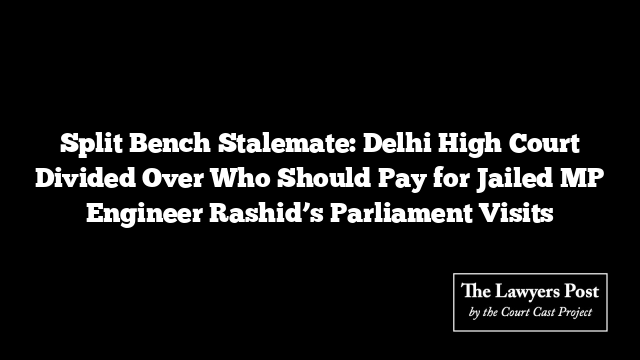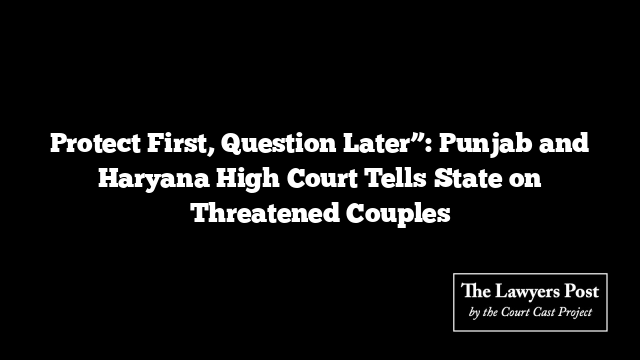In a rare judicial deadlock, the Delhi High Court delivered a split verdict on a plea by jailed Baramulla MP Engineer Rashid, who asked that the government—not him—cover the steep daily bill of ₹1.44 lakh for his escorted travel from Tihar Jail to Parliament.
Justice Anup Jairam Bhambhani and Justice Vivek Chaudhary stood on opposite sides of the argument, with Bhambhani favoring public funding of Rashid’s commute, while Chaudhary firmly disagreed. The matter now heads to Chief Justice DK Upadhyaya for resolution.
Rashid, detained under the Unlawful Activities (Prevention) Act in a terror funding case since 2019, was elected to the Lok Sabha from Baramulla in 2024, defeating Jammu and Kashmir Chief Minister Omar Abdullah by a margin of over two lakh votes. His petition stemmed from an earlier trial court order allowing him to attend parliamentary sessions—but at his own expense.
According to Rashid, the government charged him nearly ₹17 lakh for 12 days of travel and security—an amount he called excessive and unfair for an elected representative fulfilling his public duty. “You are saddling me with ₹17 lakh cost to represent the public? I am losing every day,” argued his counsel, Senior Advocate N Hariharan.
Justice Bhambhani agreed that the state’s demand was unreasonable. Drawing from Supreme Court precedent in the PV Narasimha Rao case, he noted that serving as a parliamentarian is a “public duty of the highest order.” He held that Rashid should only pay for basic transportation, not for the accompanying police officers who are “public servants performing state functions.”
Justice Chaudhary, however, ruled otherwise. He maintained that Rashid, as an undertrial, has no legal right or privilege to attend Parliament. He likened custodial parole to an emergency exception, granted only in cases such as a death or serious illness in the family—conditions that did not apply here. Allowing Rashid to attend sessions, he reasoned, would be “indirectly doing what the law forbids.”
The case now awaits the Chief Justice’s call—a decision that will not only settle who pays the bill but could also define how far parliamentary privileges extend for those behind bars.





